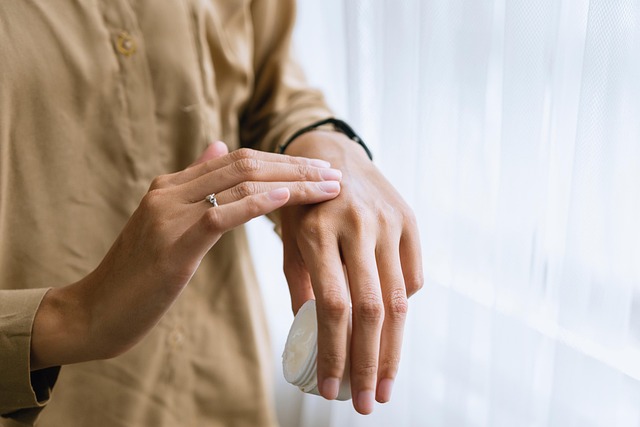Read tips for maintaining a healthy eye area naturally
The delicate skin around your eyes deserves special attention and care. Whether you're dealing with puffiness, dark circles, or fine lines, natural approaches can help you maintain a healthier, more vibrant eye area. Understanding how lifestyle choices, hydration, and gentle skincare practices influence this sensitive region empowers you to make informed decisions about your daily routine and long-term wellness.

The skin surrounding your eyes is thinner and more fragile than the rest of your face, making it particularly susceptible to signs of fatigue, stress, and aging. Eye bags, puffiness, and dark circles often result from factors like inadequate sleep, dehydration, allergies, or natural aging processes. While many cosmetic treatments exist, incorporating natural methods into your daily life can significantly improve the appearance and health of your eye area without invasive procedures or harsh chemicals.
Discover natural eye care tips
Natural eye care begins with understanding what your body needs. Cold compresses applied for 10 to 15 minutes can reduce puffiness by constricting blood vessels and decreasing fluid retention. Chilled cucumber slices or cooled tea bags, particularly green or chamomile tea, contain antioxidants and anti-inflammatory compounds that soothe irritated skin. Elevating your head slightly while sleeping helps prevent fluid from pooling around your eyes overnight. Additionally, limiting salt intake reduces water retention throughout your body, including the delicate eye area. Incorporating foods rich in vitamins C, E, and K supports collagen production and strengthens capillary walls, which can minimize dark circles over time.
Embrace mindful skincare routines
Establishing a consistent, gentle skincare routine specifically for your eye area makes a noticeable difference. Always use your ring finger when applying products around your eyes, as it naturally applies the least pressure. Pat products gently rather than rubbing or pulling the skin. Choose fragrance-free, hypoallergenic formulas designed for sensitive skin to minimize irritation. Remove makeup thoroughly each night using a gentle cleanser or micellar water to prevent clogged pores and inflammation. Consider incorporating natural oils like almond or rosehip oil, which provide moisture without overwhelming the delicate tissue. Apply eye products from the inner corner outward, following the natural contour of your orbital bone. Morning and evening routines should include cleansing, moisturizing, and protection from environmental stressors.
Hydrate for healthier skin
Proper hydration serves as the foundation for healthy skin throughout your body, especially around your eyes. Drinking adequate water throughout the day maintains skin elasticity and helps flush toxins that contribute to puffiness and discoloration. Most adults should aim for eight glasses of water daily, though individual needs vary based on activity level, climate, and overall health. Herbal teas, particularly those with anti-inflammatory properties like chamomile or rooibos, contribute to your fluid intake while providing additional benefits. Foods with high water content, such as watermelon, cucumbers, and celery, support hydration from within. Limiting caffeine and alcohol consumption prevents dehydration that can exacerbate under-eye concerns. Using a humidifier in dry environments helps maintain moisture levels in your skin, particularly during winter months or in air-conditioned spaces.
Explore calming techniques for eyes
Stress and eye strain significantly impact the appearance of your eye area. Practicing eye exercises throughout the day reduces tension and improves circulation. Simple techniques include focusing on distant objects for 20 seconds every 20 minutes when working at screens, gently massaging your temples in circular motions, and performing palming exercises by covering closed eyes with warm palms for several minutes. Facial yoga specifically targeting the eye region can strengthen muscles and improve lymphatic drainage. Adequate sleep remains crucial, as the body repairs and regenerates skin cells during rest. Aim for seven to nine hours of quality sleep nightly. Creating a relaxing bedtime routine that includes limiting screen time an hour before bed and maintaining a cool, dark sleeping environment optimizes rest and minimizes morning puffiness.
Enhance your skin wellness naturally
Long-term skin wellness around your eyes requires a holistic approach that addresses internal and external factors. Protect your eyes from sun damage by wearing sunglasses with UV protection and applying mineral-based sunscreen formulated for sensitive skin. A diet rich in omega-3 fatty acids from sources like salmon, walnuts, and flaxseeds supports skin barrier function and reduces inflammation. Antioxidant-rich foods including berries, leafy greens, and dark chocolate combat free radical damage that accelerates aging. Regular exercise improves circulation and promotes healthy skin cell turnover. Managing allergies through natural methods or appropriate medical treatment prevents chronic rubbing and irritation. Avoiding smoking and secondhand smoke protects collagen and elastin fibers from degradation. Consistency in these practices yields cumulative benefits, with noticeable improvements typically appearing within several weeks to months.
Maintaining a healthy eye area naturally requires patience, consistency, and a comprehensive understanding of how various factors influence this delicate region. By integrating proper hydration, mindful skincare practices, stress reduction techniques, and lifestyle adjustments into your daily routine, you can address common concerns like puffiness and dark circles without relying solely on cosmetic interventions. These natural approaches not only improve the appearance of your eye area but also contribute to your overall wellness and long-term skin health. Remember that individual results vary, and persistent or severe concerns warrant consultation with a qualified healthcare professional to rule out underlying conditions and receive personalized guidance.
This article is for informational purposes only and should not be considered medical advice. Please consult a qualified healthcare professional for personalized guidance and treatment.




